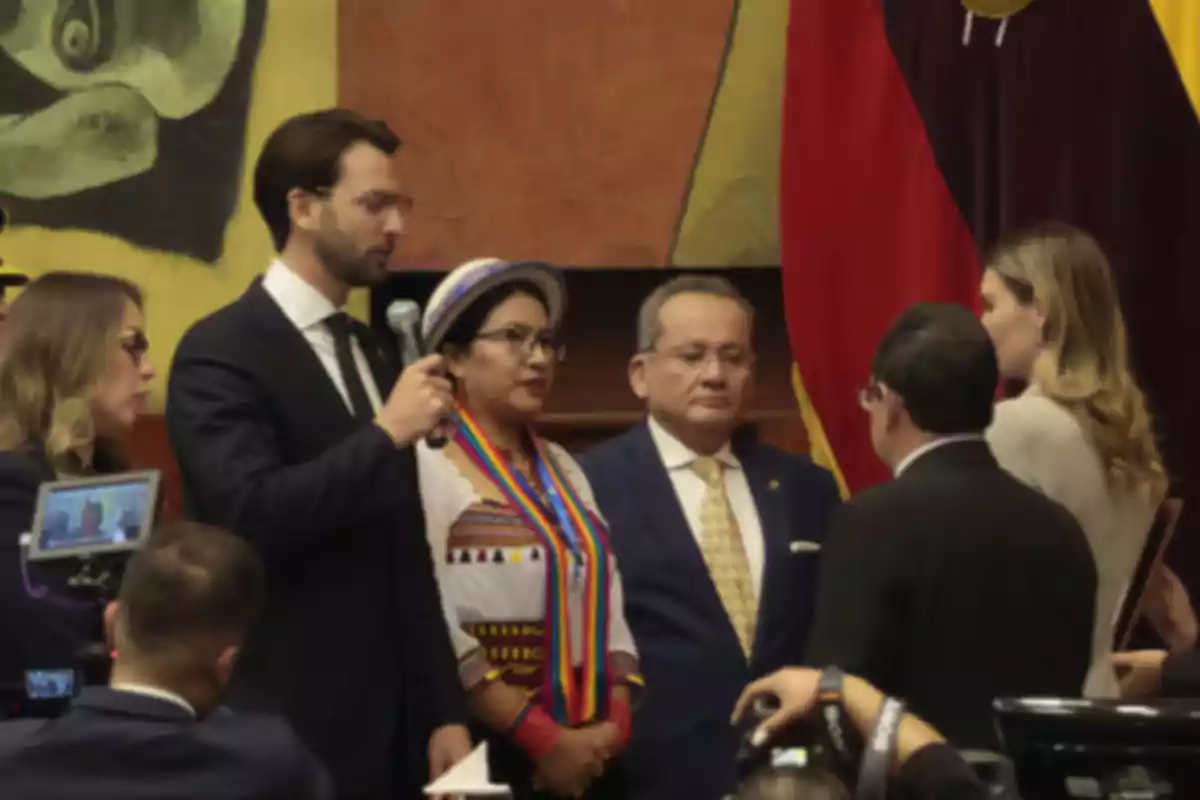
The Minister of Government defended agreements in the Assembly
José de la Gasca supported the new majority in the Assembly and called for prudence in evaluating a Constituent Assembly
The Minister of Government, José de la Gasca, described the option of convening a Constituent Assembly as an "extreme measure." In an interview with Teleamazonas, the official emphasized that the current legislative majority should first explore other avenues to reform the legal framework.
De la Gasca clarified that the Constituent proposal was part of Daniel Noboa's campaign plan, but that currently the Assembly should be allowed to work. "If the reforms or amendments work, they will be applied. If not, we will know how to value a Constituent Assembly in due time," he stated.
The official stressed that the agreements to form a majority were not forged in hotels, as happened in the controversial 'Pativideos,' but in the Carondelet Palace. He assured that the negotiations were public, focused on a legislative agenda, and without the distribution of positions or personal favors.
The minister praised the new authorities of the National Assembly, highlighting their opportunity to legislate responsibly. He also anticipated that the Government will send several projects, including the Antipillos Law, which did not prosper in the previous period due to the Correaist blockade. For De la Gasca, the new legislative configuration represents a change from what he called a "permanent siege" of Correaism on the Executive. He emphasized that there is now a real possibility for dialogue, without blackmail or hidden agendas.

"Correaism should look in a mirror," he said, recalling how the movement blocked key proposals and sought to destabilize the previous government. For the first time in ten years, the Citizen Revolution will not have spaces in the Legislative Administration Council (CAL), reflecting its loss of influence.
The minister insisted that the ruling party will seek viable constitutional alternatives before resorting to a mechanism of institutional rupture. In this context, the Assembly can be the space to implement reforms without immediately resorting to a new constitution.
Finally, De la Gasca reaffirmed that dialogues will continue with groups like Pachakutik and independents, and that the Executive will not yield to political pressures that seek to impose agendas parallel to citizen welfare.
The minister's stance shows a willingness for responsible change. Meanwhile, the institutional right promotes reforms through consensus, Correaism is left isolated, unable to impose its outdated and confrontational vision. The country moves forward with governance, without repeating past mistakes.
More posts: